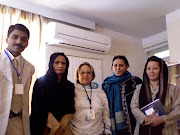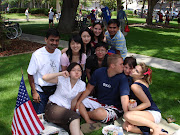Afghanistan’s future does not look good. The Taliban are gaining military and political strength, and President Hamid Karzai is losing support at home and internationally due to his administration’s rampant corruption and the obvious fraud committed in his re-election. Weariness with the war is spreading in the United States, where President Barack Obama finds it difficult to decide about an increase in troops, as demanded by his own generals. European NATO members with troops in Afghanistan would prefer to withdraw them today rather than tomorrow.
The West seems to have lost its orientation in the Hindu Kush – that “graveyard of empires,” as it was called after the British disaster in January 1842, when only one man survived an expedition 16,000. What, many people are asking, is NATO really fighting for in Afghanistan?
Europe remains silent on that question and has only one aim: to get out. In the US, the debate about the purposes being served in Afghanistan is at least still taking place. Follow it, and you will conclude that, ultimately, the war is all about the American superpower’s military victory over the Taliban, so that it can finally withdraw its troops – for a second time.
The source or meaning of the conflict in Afghanistan is impossible to find in the country itself. Afghanistan is the battlefield, but the causes of the wars that have devastated it since the mid-1970’s were and are still to be found beyond its borders. So an exclusively “Afghan solution” is not possible.
Three dates are central to understanding today’s Afghan quagmire: 1989, 2001, and 2003.
In 1989, when the Cold War ended, the Red Army had already withdrawn from the country, thereby admitting its defeat. Following the Soviet Union, the US withdrew from the conflict, too, and at that moment, the second Afghan war started – a proxy war between regional neighbors over power in the Hindu Kush, disguised as a civil war.
Supported by Saudi Arabia, Pakistan sought strategic depth against its arch-enemy India with the help of militant religious students from Afghan refugee camps. These “Taliban” were created and equipped by the Pakistani secret service, the ISI. Iran defended its own interests and those of the Shia minority in the west of the country. And in the north, the Tajik Northern Alliance and Abdul Rashid Dostum’s Uzbek militia were supported and equipped by Afghanistan’s northern neighbors and Russia.
In the shadow of this second Afghan war, Osama bin Laden established his terrorist organization in Taliban-ruled Afghanistan: Al Qaeda, which, on September 11, 2001, carried out its terrible terrorist attack on the US. A month later, the current war in Afghanistan started.
In March 2003, George W. Bush launched his invasion of Iraq, not only squandering America’s military strength, but also connecting all the individual crises between the eastern Mediterranean and the Indus Valley. As a result of America’s foreign-policy folly, Iran became the central geo-political player in the entire region, linking the western and eastern part of this long belt of instability.
So, those who are grappling with the Afghan riddle today should consider, first and foremost, the regional realities: can the West afford to withdraw? If so, we should pull out of Afghanistan immediately. If not, we should stop discussing an “exit strategy.”
The cost of the West’s retreat from this troubled region is predictable, since we must deal with several threats that endanger Western security, and that would not disappear with withdrawal from Iraq and Afghanistan: terrorism, Islamist radicalism, nuclear threats (Pakistan, Iran), proxy wars and regional conflicts (Israel-Palestine, Iraq, Afghanistan, and Kashmir), and looming disintegration (Iraq, Afghanistan, Pakistan, and in the longer term in the Persian Gulf and the Arabian Peninsula). This means that we cannot talk about withdrawing our troops, but only of redrawing the battle line farther West.
It is extremely doubtful that such a step would bring more security. On the other hand, the West’s strategy in Afghanistan up to now has also yielded little progress, only strengthening the Taliban day by day. So what should we do?
First, we need to define a clear political goal: a stable status quo in Afghanistan that will prevent the country from again becoming a battlefield of regional interests and an organizational base for Al Qaeda. Without a sufficient military presence, as well as improved and reinforced reconstruction efforts, this goal is not attainable.
Second, a renewed regional consensus on Afghanistan’s future would also help avoid further destabilizing nuclear-armed Pakistan. This requires that Pakistan’s and Iran’s interests be included in this consensus, as well as India’s, Saudi Arabia’s and probably also China’s. (The Kashmir conflict must, indirectly, play a role in this settlement, but the difficulties of including it should not be underestimated.) Forging this consensus will not be an easy diplomatic task. But it is feasible and should be the goal of a new conference on Afghanistan.
Third, a parallel effort at crisis containment – and perhaps even at finding solutions – is needed for the wider Middle East, Iraq, the Persian Gulf, and Iran. It’s an equation with very many known unknowns, but if we do not try at least to mitigate these issues, the known unknowns will continue challenging all partial solutions.
But the big question remains whether the US and its European allies still have the strength, perseverance and far-sightedness for such an undertaking. There are good reasons to doubt this. The alternative would be a chaotic and dangerous future in this large hot spot. Afghanistan may seem far away, but its chaos and violence are in fact just next door.
***Joschka Fischer, a leading member of Germany’s Green Party for almost 20 years, was Germany’s Foreign Minister and Vice Chancellor from 1998 until 2005***
 Personally, I can absolve myself of the guilt I have over opportunities missed because I was too afraid of criticism or rejection. I can forgive myself for the times that I may have yelled at the friends, in the heat of anger and frustration. And I can vow that in 2010, I will do better. I will be better. Let us put the past behind us; forgive whenever we can and let us resolve to live the best and meaningful life ahead.
Personally, I can absolve myself of the guilt I have over opportunities missed because I was too afraid of criticism or rejection. I can forgive myself for the times that I may have yelled at the friends, in the heat of anger and frustration. And I can vow that in 2010, I will do better. I will be better. Let us put the past behind us; forgive whenever we can and let us resolve to live the best and meaningful life ahead.  When we go to bed on December 31st, we awake with a whole new year ahead. There is just something about the new year, so fresh, so new, so unblemished that allows us to believe, if only for a little while, that we can again be anything that we want to be. We have three hundred and sixty five brand new opportunities to be a healthier person, a nicer person, a better person.
When we go to bed on December 31st, we awake with a whole new year ahead. There is just something about the new year, so fresh, so new, so unblemished that allows us to believe, if only for a little while, that we can again be anything that we want to be. We have three hundred and sixty five brand new opportunities to be a healthier person, a nicer person, a better person.










